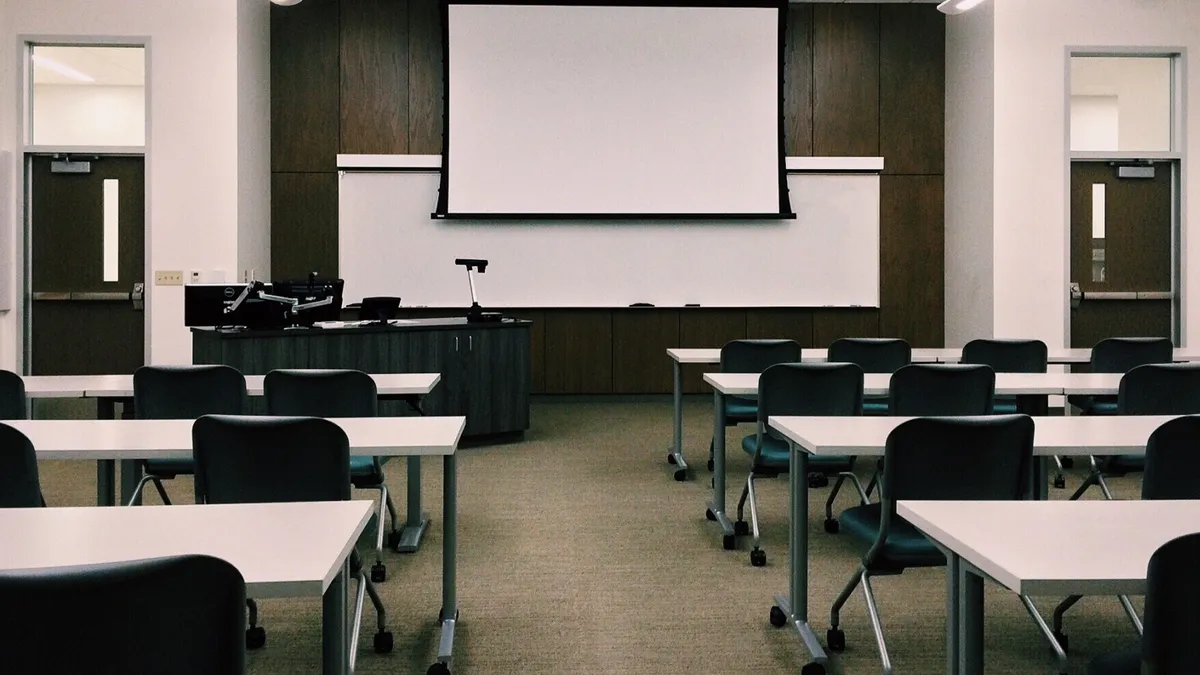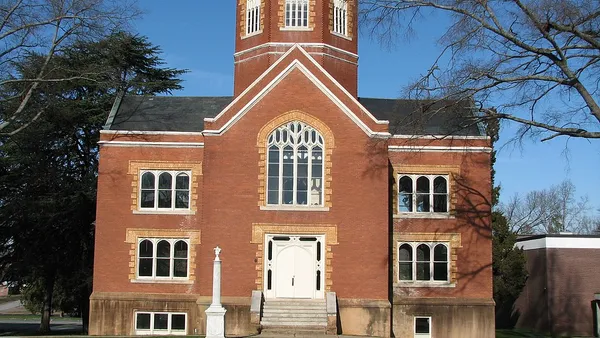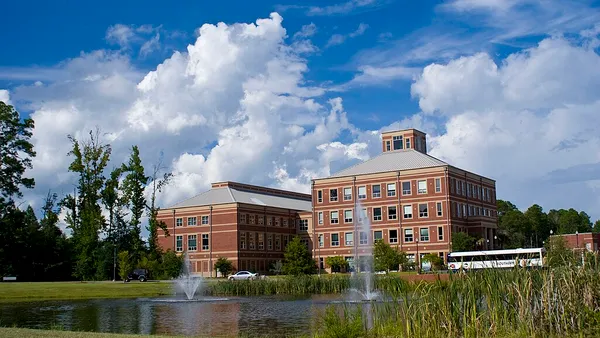Dive Brief:
-
Forty percent of incoming freshmen say it is unlikely they'll attend college in the fall, according to a survey conducted last month of more than 1,800 college students, split evenly between incoming freshmen and returning students.
-
SimpsonScarborough conducted similar surveys in March and April, and at the time, a smaller share of freshmen said it was unlikely they would attend school the following term.
-
About a fifth of colleges still intend to offer primarily face-to-face classes, recent data shows, but that share is shrinking as verified coronavirus case numbers rise across the U.S.
Dive Insight:
The sector's plans for the fall have changed significantly since the spring. Many colleges planned for the coming academic year under the assumption that coronavirus case numbers would drop in the summer and then spike in the winter. However, the virus has surged in many states, leading some institutions to revert to online education in the fall.
College students generally report they prefer in-person instruction over online classes, though the most recent SimpsonScarborough survey found that nearly 40% of incoming freshmen would rather stay home and take their courses virtually. Of the new and returning students surveyed, only 17% said they'd rather have full-time, in-person instruction.
That's because they're worried about catching the virus, said Elizabeth Johnson, chair of the firm.
Three out of four students surveyed said they were somewhat or very worried about contracting COVID-19, the disease the virus causes. More than half of returning students said they felt safe in classrooms set up to accommodate social distancing, but only 34% said they felt the same about living in campus residence halls.
Only a quarter of returning students strongly agreed with the statement that they trust their institution to take the necessary steps to keep students safe, the survey found. And more than 40% of all students strongly agreed with their colleges' decisions not to reopen campus.
But the survey results reveal an odd disconnect, Johnson said. Though students fear falling ill if they're on campus, they're also not fully committing to practice safety measures.
More than half of returning students strongly agree that they'll follow their colleges' policies, but only a fraction strongly agree their peers will. Eighty percent of returning students said they'll wear masks inside campus buildings, yet only 59% would commit to avoiding social gatherings with more than 10 people.
Behavioral experts say that while few students will deliberately flout pandemic-related rules, the virus will likely be spread through negligence, such as people not obeying the recommended 6 feet of distance when they see a friend, or removing their face covering to have a conversation.
Outbreaks of cases have been linked to college-town bars and Greek life parties at several institutions.
Recently, the University of North Carolina at Chapel Hill rebuked fraternity and sorority leaders after a video surfaced on social media showing some 50 young women leaving a house, mostly maskless, in what was deemed a Greek event. UNC-Chapel Hill began classes in-person on Monday after rejecting a recommendation from the local health department to offer courses online for the first five weeks of the term.
Colleges "can't underestimate the challenge it will be to get students to follow their COVID guidelines," Johnson said. "It is unrealistic to say ‘sign this pledge and follow this list of 20 rules.'"
Administrators should expect even more volatility when fall classes begin on their campus, Johnson added, noting students may still change their minds about enrolling.
"Many of them are feeling good about their enrollment numbers … but what our data reveals is that a lot of decision-making is still happening," Johnson said.















